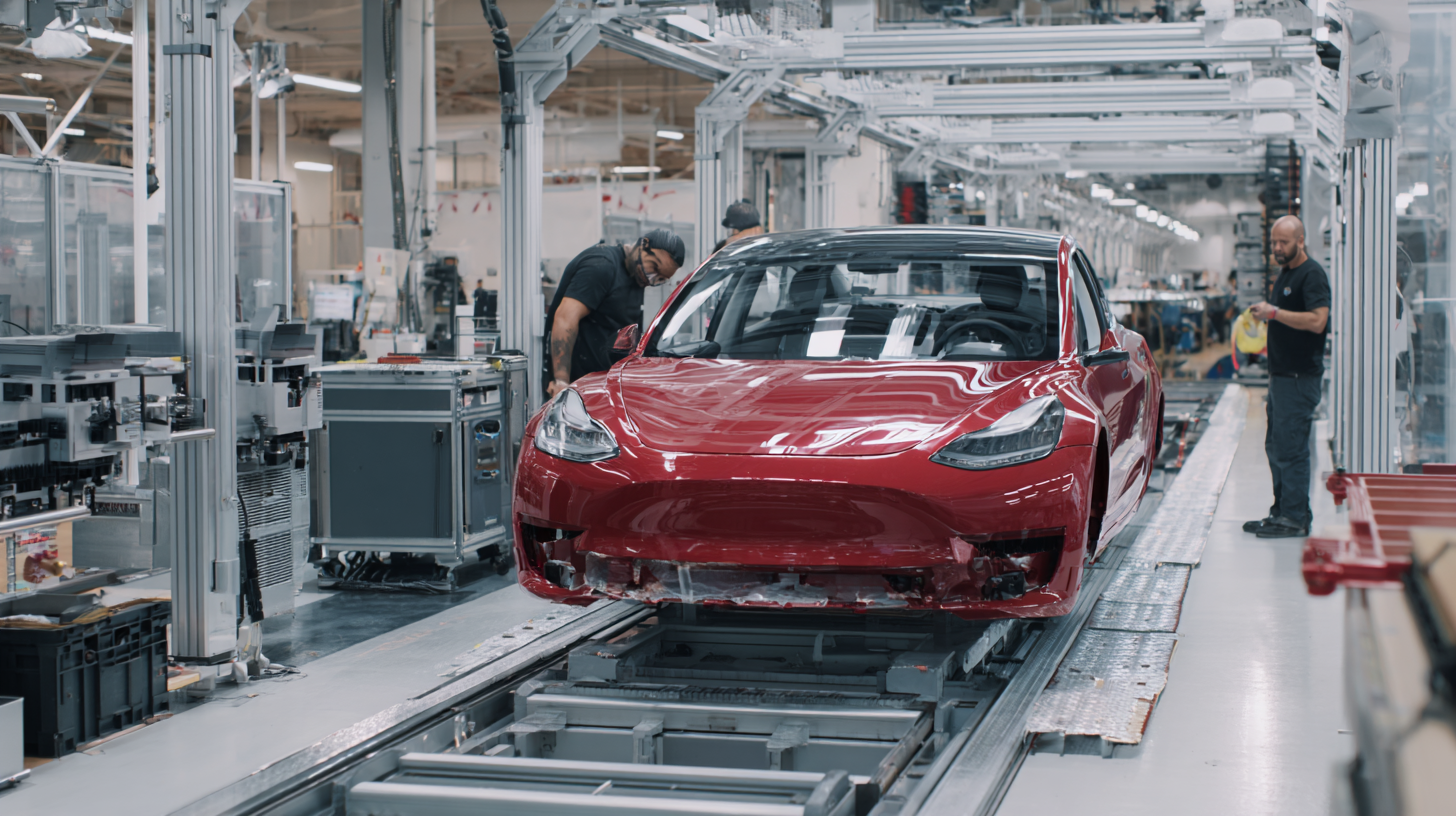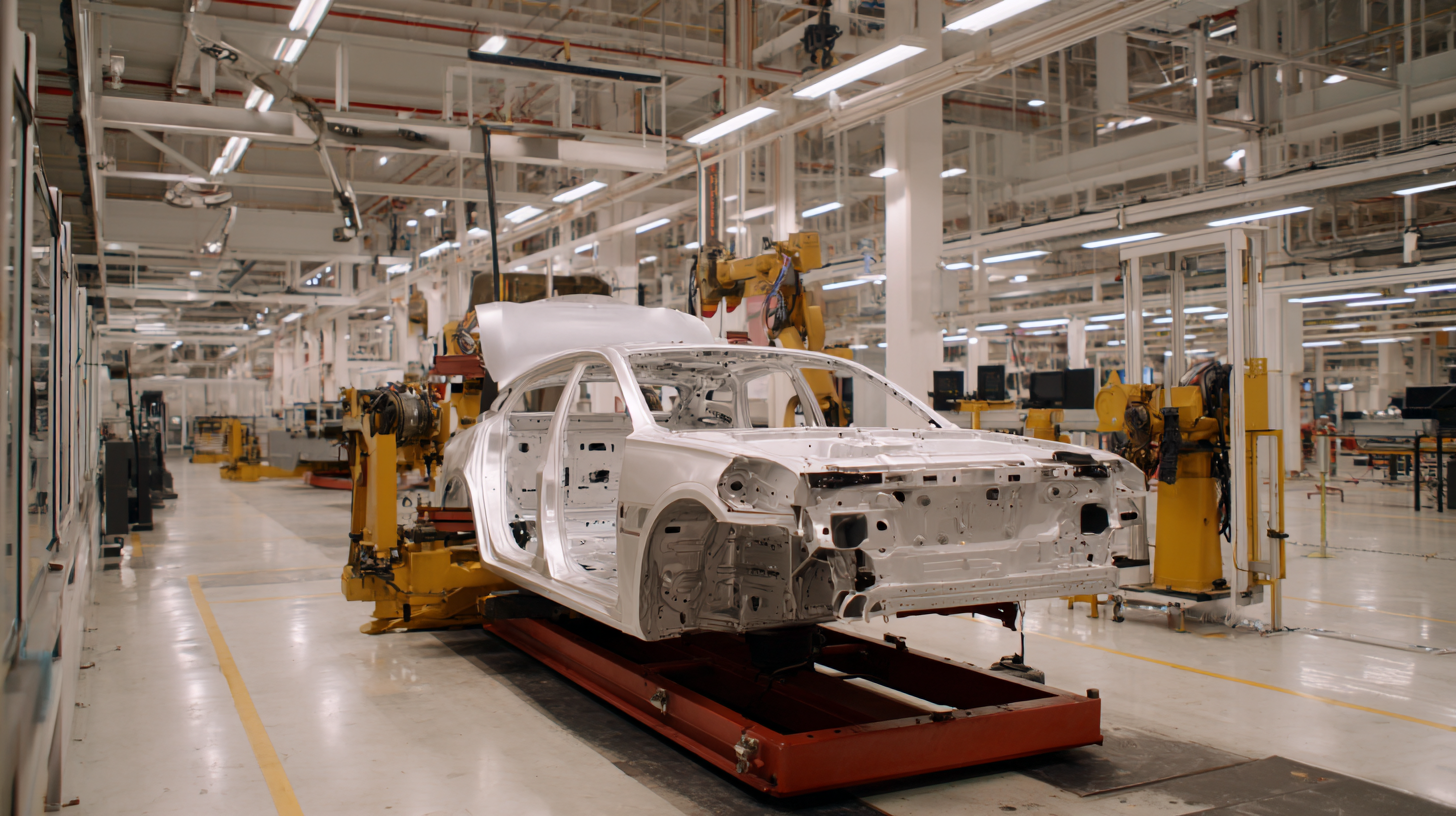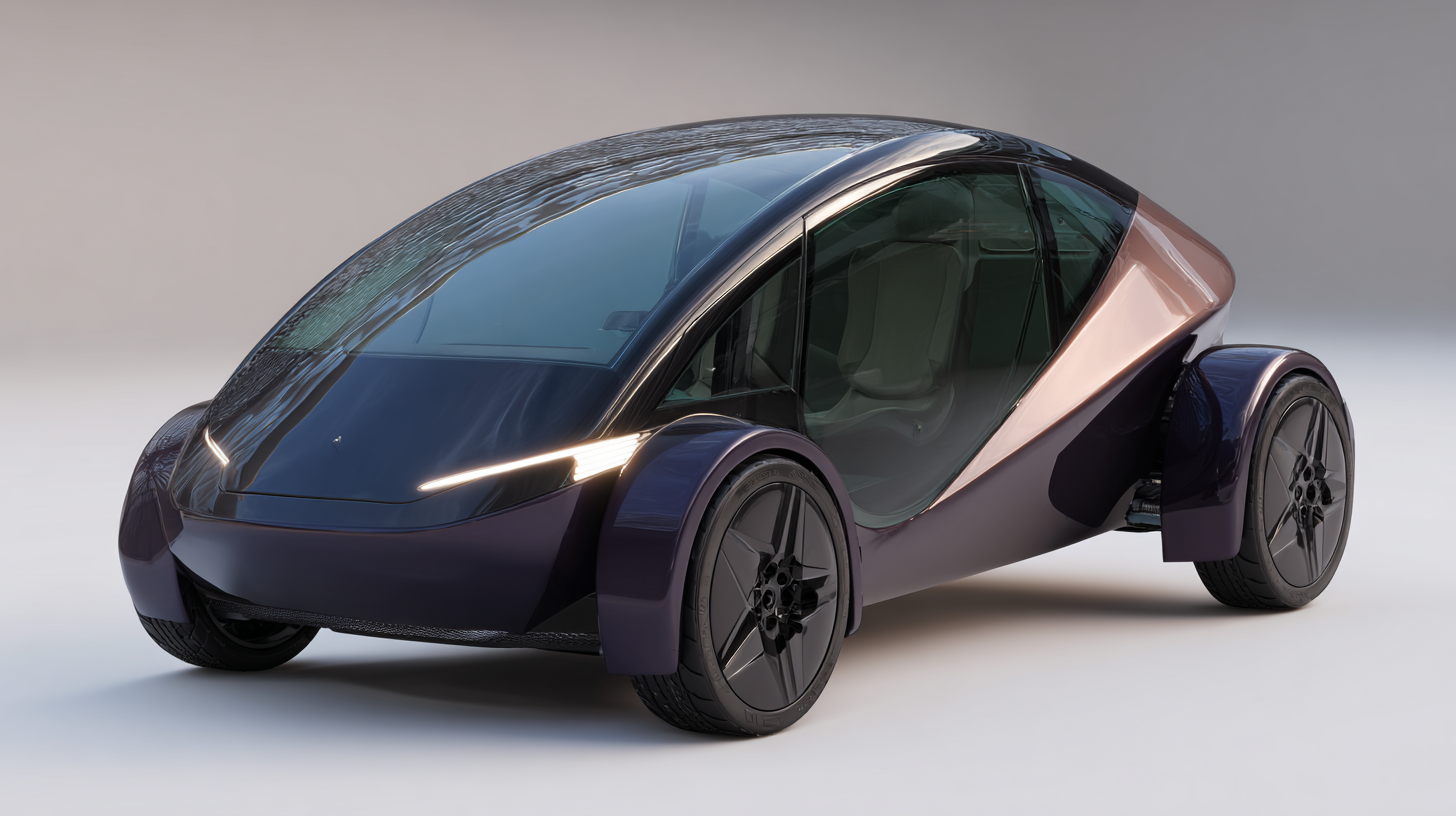The advancement of Electric Vehicle Mold technology is pivotal in transforming the manufacturing processes underpinning the electric vehicle industry, which is projected to reach a market value of $800 billion by 2027, growing at a CAGR of 22.6% from 2020 to 2027, according to a recent report by Fortune Business Insights. As manufacturers increasingly focus on sustainable practices to meet rising environmental concerns and government regulations, innovative mold solutions that enhance efficiency, reduce waste, and improve product quality are becoming critical.

Electric Vehicle Mold technologies are now leveraged to enable lightweight structures, improve aerodynamics, and facilitate quicker production cycles while minimizing material usage. By integrating digital tools and IoT capabilities, these molds are optimizing design and production methodologies, significantly contributing to the sustainability of electric vehicle manufacturing. As the industry evolves, the role of Electric Vehicle Mold technology is amplified, establishing it as a cornerstone for the future of eco-friendly automotive production.
The electric vehicle (EV) industry is rapidly evolving, and advanced mold technologies play a crucial role in transforming manufacturing processes. By integrating state-of-the-art techniques, manufacturers can improve efficiency and reduce waste while producing high-quality components. Innovations such as 3D printing molds and advanced composite materials allow for more complex designs that can enhance vehicle aerodynamics and performance. This evolution not only addresses the growing demand for EVs but also promotes sustainability by minimizing the environmental impact of production.
Furthermore, the application of smart manufacturing technologies, such as IoT and automation, streamlines the mold creation process. Real-time data analytics enable manufacturers to optimize production schedules and reduce downtimes, enhancing overall productivity. As companies adopt these advanced mold technologies, they are not only able to meet the increasing market demand but also position themselves as leaders in eco-friendly manufacturing practices.
This shift will ultimately contribute to the broader adoption of electric vehicles, aligning with global sustainability goals while setting new standards for the future of automotive production.
The electric vehicle (EV) mold technology sector is experiencing significant growth, with the market projected to expand from $257.2 million in 2023 to $926 million by 2030, reflecting a remarkable compound annual growth rate (CAGR) of 20.1%. As the demand for electric vehicles surges, innovations in mold design are becoming increasingly pivotal. This trend is particularly pronounced in North America, which currently dominates the global market, leveraging advancements in technology and manufacturing efficiency to push the boundaries of traditional mold production.
The automotive mold manufacturing sector, known as the "mother of automotive technology," is characterized by its capital and knowledge intensity as well as non-standardized processes. As the industry embarks on a new wave of technological and industrial transformation driven by electrification and digital technologies, mold companies have begun to explore opportunities within downstream structural components. This shift is not only necessary for meeting evolving consumer demands but also presents unique challenges and opportunities for the development of key common technologies, which are essential for sustaining innovation in this sector.

The landscape of electric vehicle (EV) manufacturing is rapidly evolving, particularly with the introduction of advanced mold technology. Efficient mold technology is not only crucial for enhancing production speed but also plays a significant role in sustainability metrics. By minimizing material waste and energy consumption during the manufacturing process, manufacturers can significantly reduce their carbon footprint. This focus on sustainability aligns with the growing demand for environmentally friendly solutions, enabling companies to meet regulatory requirements and consumer expectations alike.
Tips for implementing efficient mold technology include investing in high-quality materials that enhance durability while reducing energy usage. Additionally, consider adopting advanced simulation software to optimize the design and production processes, which can lead to significant efficiencies. Regular maintenance of mold equipment is also essential to ensure long-term performance and sustainability.
Moreover, collaboration between manufacturers and material suppliers can lead to innovations that further enhance sustainability. By sharing insights on the latest advancements in mold technology, companies can collectively work towards minimizing their environmental impact. Emphasizing these sustainability metrics not only benefits the planet but also strengthens the market position of EV manufacturers in an increasingly eco-conscious world.
| Metric | Before Mold Technology Improvement | After Mold Technology Improvement | Percentage Improvement |
|---|---|---|---|
| Material Waste (%) | 15 | 7 | 53.33 |
| Energy Consumption (kWh per unit) | 5.0 | 3.2 | 36.00 |
| Production Time (hours per unit) | 10 | 6 | 40.00 |
| Overall Cost Savings (%) | 20 | 35 | 75.00 |
| CO2 Emissions (g per unit) | 200 | 120 | 40.00 |
The electric vehicle (EV) industry is at the forefront of innovation, with sustainable manufacturing practices becoming increasingly vital. Recent case studies demonstrate the successful implementation of eco-friendly mold solutions, showcasing how companies are integrating advanced technologies into their production processes. According to a study by Research and Markets, the global market for biodegradable plastics is projected to reach $18.1 billion by 2025, highlighting a trend towards sustainable materials in manufacturing.
One notable example involves a leading EV manufacturer that adopted biodegradable thermoplastics in their mold designs, significantly reducing their carbon footprint during production. By leveraging smart automation technologies, these companies have not only improved efficiency but also minimized waste—crucial for any sustainable initiative. As highlighted by the International Federation of Robotics, the integration of intelligent robotics into manufacturing processes brings about precision and speed, setting a benchmark for the EV industry to follow. These advancements are paving the way for a cleaner and more sustainable future in automotive manufacturing.
This chart illustrates the trend of eco-friendly mold solutions implemented in the electric vehicle industry over various years. The data reflects the increasing adoption of sustainable manufacturing technologies.
The role of mold technology in the electric vehicle (EV) production process is becoming increasingly significant as the industry strives for sustainability and carbon neutrality. According to a market analysis, the United States metal forging market was valued at $7.75 billion in 2022, with a projected compound annual growth rate (CAGR) of 6.1% during the forecast period. This growth is crucial as advanced mold technology not only enhances the efficiency of manufacturing but also significantly reduces waste, contributing to a greener production cycle in the EV sector.
Furthermore, the electric vehicle battery box market is projected to soar from $195.3 million in 2023 to approximately $18.77 billion by 2032, reflecting an impressive CAGR of 29.7%. This surge underscores the importance of integrating innovative mold solutions that streamline battery box production while adhering to stringent environmental standards. As mold technology evolves, its ability to facilitate the production of lighter, stronger components will be pivotal in enhancing the overall efficiency of electric vehicles, thus playing a key role in the industry's pathway towards achieving carbon neutrality.







